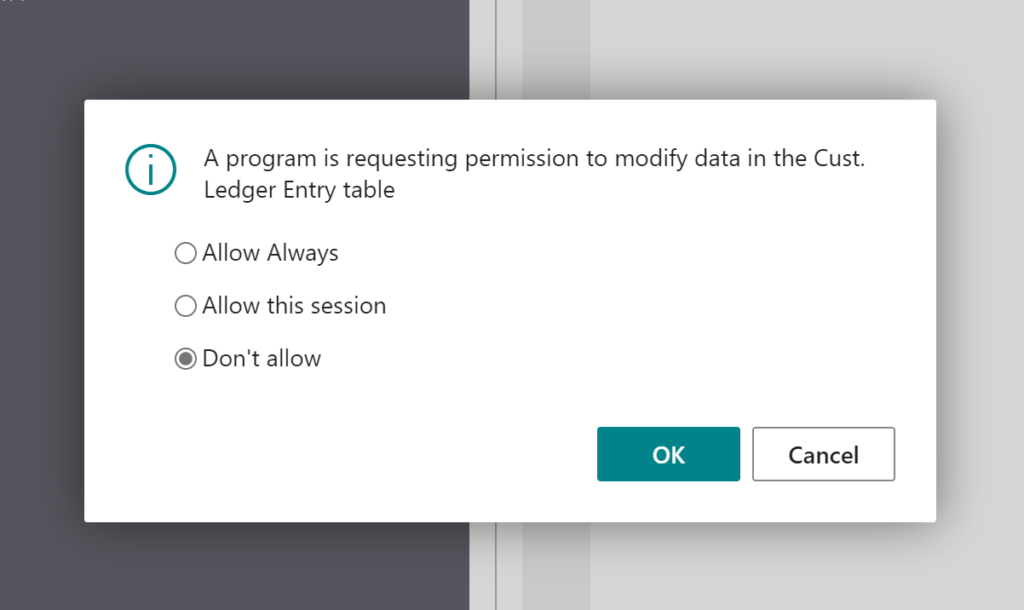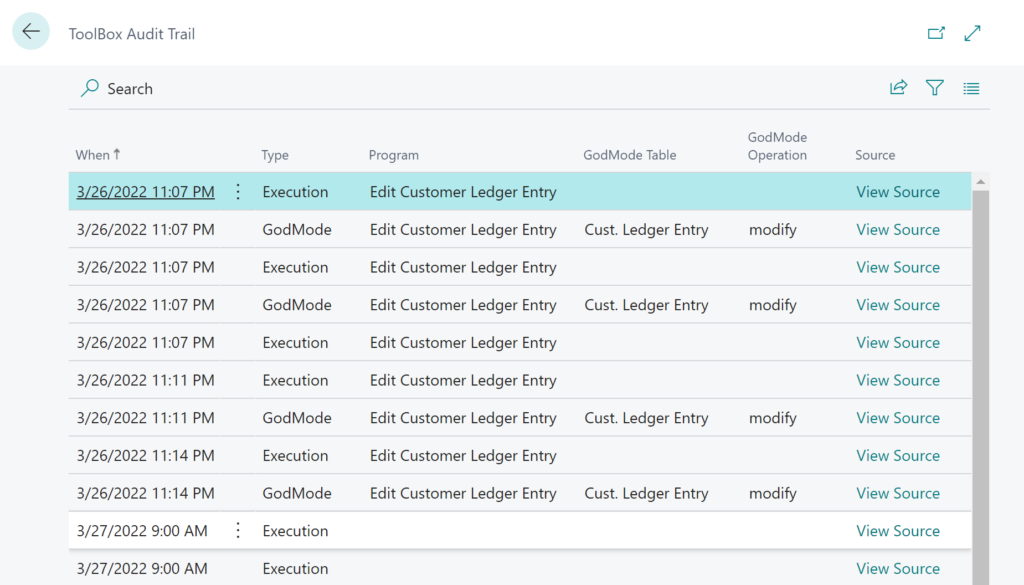Access to the ToolBox is for users with Business Central SUPER permission. On top of that, a user will also need special permission to use the ToolBox. Everything a user does with the ToolBox is also recorded in the Audit Trail.

There are three levels of user access:
| Access Level | Description |
|---|---|
| Read Only | A user cannot use .insert(), .modify(), .delete(), .modifyall(), .deleteall() in AL code. |
| Write in normal tables | A user can do write operations in normal tables but not in restricted tables (like G/L Entry or Cust. Ledg. Entry) |
| GodMode | A user can access all tables and perform all operations. Only GodMode users can edit ToolBox users. |
The first user that’s accessing the ToolBox will automatically be added as a GodMode user.
GodMode
The GodMode access is special, overriding the normal protection of tables in Business Central. When a program is accessing one of the tables, a special warning is given:

The user can decide to always allow access to the given table by selecting Allow Always. Then the warning is never shown again for this table unless the Restore GodMode warnings function is used (from the User List). If the user select Allow this session, then no more warnings are given for that table (but other tables will still give warnings). Don’t allow will abort the current program.
Audit Trail
From the user list, you can view the Audit Trail for a specific user. An Execution entry is added each time a user presses Run on a program. If the user has GodMode and restricted tables are accessed, a GodMode entry is added, specifying the table and what operation is performed.

The source code is also recorded for each entry and can be viewed by clicking View Source:
